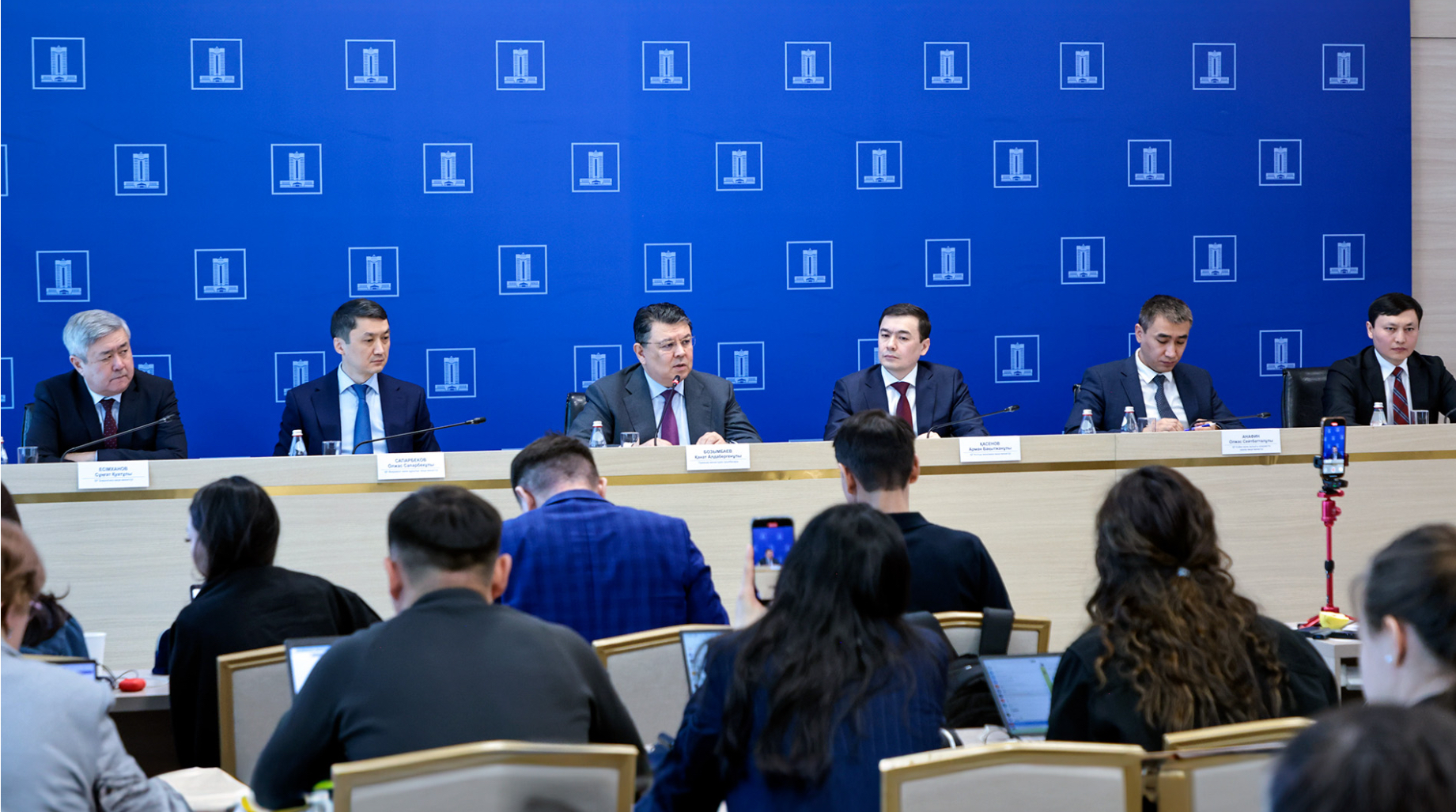The government held a press conference to discuss the implementation of the National Project for the Modernization of the Energy and Utilities Sectors. The event was attended by high-ranking officials, including Deputy Prime Minister Kanat Bozumbayev, Vice Minister of National Economy Arman Kassenov, Vice Minister of Energy Sungat Yesimkhanov, Vice Minister of Industry and Construction Olzhas Saparbekov, Vice Minister of Labor and Social Protection Olzhas Anafin, and Chairman of the Committee for the Regulation of Natural Monopolies Asan Darbayev.

The national project aims to modernize outdated utility infrastructure and ensure reliable public utilities across Kazakhstan. A key objective is to reduce the wear and tear of utility networks by up to 40%, as current levels range from 65% to 100% in energy, heat, water supply, and sanitation sectors. The existing infrastructure, much of which has been in operation for over 50 years, faces an annual natural wear and tear rate of 2-3%, translating to the deterioration of 4,000-5,000 kilometers of utility networks each year.
To address this, the government plans to construct new facilities, modernize existing systems, and add 7.3 GW of electricity and thermal energy generation capacity to avoid future energy deficits.
The project involves more than 200 natural monopoly entities—70% of which are state-owned and 30% private—in 57 cities. To finance this massive undertaking, a combination of market and budgetary loans and support from international financial institutions will be utilized. Loans will be provided exclusively in the national currency to minimize financial risks.
Private sector involvement is a key element of the initiative. Mechanisms are being developed to encourage private investment, reducing the financial burden on the state budget.
To support domestic production, the project mandates a focus on Kazakhstani-made products. A list of 187 local enterprises producing 711 commodity items has been compiled, with potential localization opportunities for 337 items. Measures include:
- Offtake contracts to encourage local production.
- Electronic procurement platforms for transparent supplier-contractor interactions.
Transparency and accountability will be central to the project, with a controlled process from planning to commissioning. Tariff changes will consider the socio-economic conditions of each region and will be subject to public discussions with consumers.
The project also includes provisions for citizens with low incomes. Measures include:
- Housing assistance for utility bill payments.
- Targeted social assistance for those below the poverty line.
- General social support to ensure accessibility to essential utilities.
The government emphasized that the National Project will significantly improve the quality and reliability of utilities, reduce energy deficits, and stimulate economic growth by modernizing infrastructure and supporting local industries.
Follow Daryo's official Instagram and Twitter pages to keep current on world news.
Comments (0)